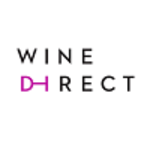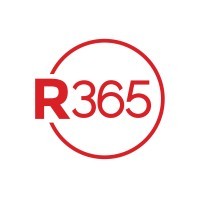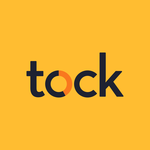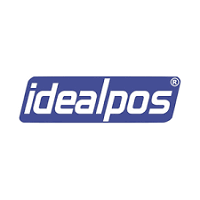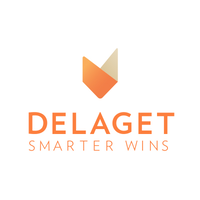Top Restaurant Management Softwares
Restaurant Management software streamlines the operations of food service establishments. It integrates various aspects such as order management, inventory tracking, employee scheduling, and customer relationship management. This software enhances efficiency by reducing human errors and providing real-time data insights. Managers can optimize resources, leading to improved service quality and cost... Read More
226 companies found
WineDirect
Product Description
WineDirect is a straightforward and effective tool aimed at helping wineries streamline their direct-to-consumer (DTC) sales processes. It’s designed to make the journey from the vineyard to the customer’s doorstep as smooth as possible. With WineDirect, producers of all sizes can manage and grow their DTC channels easily. Whether you're a small boutique winery or a well-established brand, WineD... Read More
Users
- • No Data
Industries
- • No Data
Market Segment
- • No Data
Product Description
Agilysys is a leading provider of software solutions specifically designed for the hospitality industry. For businesses like hotels, resorts, and restaurants, it offers tools to streamline operations, enhance guest experiences, and manage resources efficiently. Their software solutions cover various aspects of hospitality management. For example, property management systems help businesses handl... Read More
Users
- • No Data
Industries
- • No Data
Market Segment
- • No Data
Restaurant365
Product Description
Restaurant365 is a cloud-based software designed specifically for the needs of the restaurant industry. It combines various aspects of restaurant management into one easy-to-use platform, helping owners and managers handle everything from accounting and payroll to inventory and scheduling. This software integrates seamlessly with your existing systems and provides real-time insights into your busi... Read More
Users
- • No Data
Industries
- • No Data
Market Segment
- • No Data
Wine Management Systems
Product Description
Wine Management Systems is designed to simplify and enhance the day-to-day operations of wineries. Our software streamlines tasks, helping you manage production, inventory, and sales with greater ease. By putting all the tools you need in one place, you can focus more on creating high-quality wines and less on administrative headaches. Our platform offers an intuitive interface, making it easy fo... Read More
Users
- • No Data
Industries
- • No Data
Market Segment
- • No Data
Product Description
CAKE POS is a dynamic and user-friendly software designed to simplify operations in the food and beverage industry. Tailored specifically for restaurants, cafés, bars, and other dining establishments, CAKE POS integrates seamlessly into everyday business processes, making it easier to manage orders, streamline payment processing, and keep track of customer preferences. What sets CAKE POS apart i... Read More
Users
- • No Data
Industries
- • No Data
Market Segment
- • No Data
Yelp Reservations
Product Description
Yelp Reservations is designed to streamline the way restaurants manage their bookings and seating arrangements. Imagine having a tool that helps you fill those empty tables and ensures your guests have a smooth dining experience. That's what Yelp Reservations offers—an intuitive, easy-to-use system that takes the hassle out of managing reservations. For restaurant owners, keeping track of reserva... Read More
Users
- • No Data
Industries
- • No Data
Market Segment
- • No Data
Product Description
Tock is a powerful software platform designed to streamline restaurant operations, taking the hassle out of managing reservations, events, and takeout all in one place. Built with the modern restaurateur in mind, Tock combines simplicity and efficiency, helping manage tables, track customer preferences, and maximize guest experiences with ease. At its core, Tock focuses on creating an organized a... Read More
Users
- • No Data
Industries
- • No Data
Market Segment
- • No Data
Product Description
Quandoo is a user-friendly platform designed to help restaurants manage reservations and increase customer engagement. It's built to make the life of restaurant owners and managers easier by offering practical tools right at their fingertips. The software streamlines the reservation process, allowing you to efficiently handle bookings and reduce no-shows. Through Quandoo, customers can book table... Read More
Users
- • No Data
Industries
- • No Data
Market Segment
- • No Data
Product Description
Idealpos is a versatile software designed to make managing your business easier and more efficient. Created with the needs of various industries in mind, Idealpos aims to streamline daily operations so you can focus on delivering great service and driving growth. Whether you own a cafe, retail store, or service-based business, this software comes with a range of features to help you handle everyth... Read More
Users
- • No Data
Industries
- • No Data
Market Segment
- • No Data
Product Description
Delaget is a software company that focuses on helping businesses in the restaurant industry improve their operations through data-driven insights. Whether you're a single-location eatery or a large chain with multiple outlets, Delaget provides tools designed to make running your business easier and more efficient. The main appeal of Delaget is its ability to collect data from various sources with... Read More
Users
- • No Data
Industries
- • No Data
Market Segment
- • No Data
What features should I look for in restaurant management software?
When searching for Restaurant Management software, several features are crucial for enhancing your operations. These features streamline various operations, making it easier to manage tasks effectively and efficiently. Here are some essential aspects to consider:
Point of Sale (POS) System
A robust POS system is fundamental in Restaurant Management software. It facilitates transaction processing and ensures accuracy in orders. A good POS should be intuitive and integrate seamlessly with other systems. Look for features like real-time sales tracking and diverse payment options to enhance customer experience.
Inventory Management
Efficient inventory management is crucial for reducing costs and waste. Restaurant Management software should include tools for tracking stock levels, monitoring usage patterns, and auto-generating orders for supplies. Advanced inventory systems can predict future needs based on past usage, thus avoiding overstocking or stockouts.
Table Management
Table management features optimize seating arrangements and improve service efficiency. Restaurant Management software should provide a visual layout of the dining area, allowing staff to see seat availability and manage reservations accurately. This helps in maximizing turnover and improving customer satisfaction by reducing wait times.
Employee Scheduling
Managing staff shifts becomes effortless with effective scheduling tools in Restaurant Management software. These features should allow for easy creation, modification, and communication of schedules. Consider software that also manages time-off requests, shift swaps, and labor cost analysis for better resource management.
Customer Relationship Management (CRM)
CRM features in Restaurant Management software help build and maintain customer relationships. Look for functionalities that track customer preferences, feedback, and loyalty programs. Personalizing the dining experience creates repeat business and increases customer loyalty.
Reporting and Analytics
Comprehensive reporting tools are vital in Restaurant Management software to make informed decisions. Look for software that provides insights into sales trends, customer behavior, and operational efficiency. Real-time data and customizable reports can help identify areas for improvement and enhance strategic planning.
Online Ordering and Delivery Integration
In today’s digital age, online ordering and delivery integration are indispensable. Restaurant Management software should support online orders by enabling seamless integration with delivery platforms. Features like order tracking and delivery status updates enhance operational efficiency and improve customer experience.
Menu Management
Menu management features allow for easy updates and customization of the menu. This is crucial for restaurants that regularly change their offerings. Restaurant Management software should enable digital menu displays, price adjustments, and integration with POS for updating inventory and pricing automatically.
Security and Compliance
Data security is crucial in Restaurant Management software. Ensure the software complies with industry standards for data protection and payment processing. Features like user access controls, data encryption, and secure payment gateways protect both the business and customers.
Integration Capabilities
Lastly, ensure that the Restaurant Management software you choose can integrate with existing systems. This includes accounting software, marketing platforms, and any other tools you currently use. Seamless integration minimizes redundancy and maximizes productivity by ensuring all systems work together efficiently.
How can restaurant management software improve customer service?
Restaurant Management software plays a crucial role in enhancing customer service within the hospitality industry. Its capabilities streamline operations, improve communication, and elevate the overall customer experience.
Streamlined Order Management
Restaurant Management software efficiently handles order processing, reducing the risk of errors and ensuring timely delivery. By automating order tracking from kitchen to table, this software minimizes delays and ensures that customers receive their meals promptly. Real-time updates between servers and kitchen staff also enhance coordination, significantly improving service speed and accuracy.
Enhanced Reservation and Seating Management
Handling reservations effectively can drastically improve customer satisfaction. Restaurant Management software allows for easy reservation scheduling and management. It provides staff with a clear view of table availability and upcoming reservations, thereby reducing wait times and optimizing seating arrangements. Faster seating translates to a better customer experience and increased table turnover rates.
Personalized Customer Experience
With the help of Restaurant Management software, restaurants can collect and analyze data about customer preferences and past orders. This information empowers staff to offer a personalized dining experience, suggesting menu items based on previous visits and enhancing customer satisfaction. Such personal touches can make customers feel valued and increase their likelihood of returning.
Improved Communication
Effective communication is vital for delivering quality customer service. Restaurant Management software fosters seamless interaction among staff members and between staff and customers. Integrated messaging systems and notifications ensure that everyone stays updated about customer requests and service needs, enabling staff to respond promptly and efficiently.
Efficient Inventory Management
Restaurant Management software provides accurate inventory tracking and forecasting, helping restaurants maintain optimal stock levels without over-ordering. By reducing the chance of running out of key menu items, it ensures that customers are not disappointed with unavailable options. This reliability enhances the dining experience, fostering customer loyalty.
Streamlined Payment Processing
Payment processing is a critical point in customer service where efficiency can leave a lasting impression. Restaurant Management software supports various payment methods, including contactless payments and mobile wallets. Quick and secure checkout processes improve the overall customer experience and reduce wait times at the end of a meal.
Customer Feedback and Insights
Acquiring and utilizing customer feedback is crucial to service enhancement. Restaurant Management software often includes tools to gather reviews and insights directly from customers after their dining experience. Analyzing this feedback enables management to identify areas of improvement and promptly address issues, thereby improving service quality continuously.
Training and Development
The software provides valuable data that can guide staff training efforts. By identifying service areas that need attention, Restaurant Management software helps tailor training sessions to enhance employee performance. Well-trained staff provide better service, directly impacting customer satisfaction positively.
In conclusion, Restaurant Management software is instrumental in transforming how restaurants manage operations and interact with customers. By optimizing various service aspects, it helps create a seamless, personalized, and memorable dining experience that meets customer expectations effectively.
What are the benefits of using restaurant management software for inventory tracking?
Restaurant Management software plays a pivotal role in the efficient functioning of modern dining establishments. One of the most critical components of this technology is its inventory tracking capabilities. Here are the benefits of using Restaurant Management software for inventory tracking:
Accurate Inventory Monitoring
Restaurant Management software provides real-time updates on inventory levels, which helps managers maintain accurate stock counts. Automatic tracking reduces human error, ensuring that the inventory data reflects actual usage and stock. This level of precision is vital for making informed business decisions.
Cost Control
Efficient inventory tracking through Restaurant Management software can lead to significant cost savings. By providing insights into food usage patterns and waste, restaurant managers can optimize ordering processes and reduce excess stock. Proper inventory management helps in minimizing spoilage, pilferage, and over-ordering, leading to better cost control.
Time-Saving
Manual inventory checks can be time-consuming and labor-intensive. By automating the process, Restaurant Management software saves valuable time for staff, allowing them to focus on other essential tasks. Automation in inventory tracking reduces the need for frequent physical counts, streamlining operations significantly.
Improved Supplier Management
Inventory tracking systems allow restaurants to monitor supplier performance effectively. Restaurants can track delivery schedules, check for discrepancies, and manage supplier relationships better. With Restaurant Management software, maintaining optimal stock levels becomes more manageable, leading to improved vendor interactions and negotiations.
Forecasting and Planning
By leveraging historical data, Restaurant Management software enables better forecasting and planning. It helps in analyzing consumption trends and predicting future demand. Accurate forecasts allow managers to plan for seasonal fluctuations and special events, ensuring the availability of required items without overstocking.
Waste Reduction
Tracking inventory accurately helps identify waste patterns, enabling the introduction of measures to minimize it. Restaurant Management software can provide insights into which ingredients are disposed of frequently, helping managers adjust orders and menu items to reduce waste. Sustainable practices not only conserve resources but also appeal to environmentally conscious customers.
Enhanced Reporting and Analytics
With robust reporting tools, Restaurant Management software provides in-depth analytics on inventory turnover, item utilization, and cost per dish. These insights help in fine-tuning the business strategies and improving operational efficiency. Detailed reports facilitate data-driven decision-making, highlighting opportunities for improvement.
Streamlined Communication
Software platforms often include communication tools to integrate various business functions. With Restaurant Management software, staff from different departments can access inventory data, ensuring that everyone is on the same page. This integration improves coordination between kitchen staff, management, and procurement teams.
Inventory Loss Prevention
By monitoring stock levels, Restaurant Management software helps in identifying unusual inventory usage patterns, indicating potential theft or waste. With alerts for low stock or discrepancies, managers can address inventory issues promptly, protecting the restaurant's bottom line.
Overall, the use of Restaurant Management software for inventory tracking results in improved efficiency, cost savings, and enhanced operational control. These benefits support the seamless running of restaurant operations, ultimately contributing to a better dining experience for customers.
How does restaurant management software help in managing staff schedules?
Restaurant Management software plays a pivotal role in organizing and maintaining staff schedules effectively. Managing staff schedules in a bustling restaurant environment is crucial for operational efficiency, balancing workloads, and ensuring adequate coverage during peak times. Below are key points on how such software assists in staff scheduling:
Streamlines Scheduling Processes
Restaurant Management software simplifies the process of creating, modifying, and communicating schedules. It typically features an intuitive interface that allows managers to drag and drop shifts into place, ensuring that all roles are filled. This reduces scheduling time and minimizes the potential for human error.
Facilitates Shift Rotation and Role Assignment
By using Restaurant Management software, businesses can rotate shifts and assign roles easily. The software often includes functionality to track employees' preferred shifts, skills, and past performance, allowing managers to allocate tasks effectively. This ensures that the most suitable staff members are scheduled for their strengths and preferences.
Ensures Compliance with Labor Laws
Compliance with local labor laws is essential for restaurant operations. Restaurant Management software helps managers adhere to regulations such as working hour limits, overtime pay, and mandatory breaks. The software can flag potential violations before they occur, reducing the risk of non-compliance penalties.
Enhances Communication
Keeping all staff informed about the scheduling is vital. Restaurant Management software allows managers to instantly share new schedules or changes with the entire team. This is often accomplished through notifications sent via email, text, or within the software's own messaging system.
Offers Real-Time Availability Management
The dynamic nature of restaurant work requires flexible scheduling. Restaurant Management software allows staff to update their availability in real-time. Managers can adjust schedules on-the-fly and reassign shifts as needed, ensuring optimal coverage.
Reduces Scheduling Conflicts
The potential for double-booking or scheduling staff on unavailable days is minimized with Restaurant Management software. The system often features checks that alert managers to conflicts, making it easy to resolve them before finalizing schedules.
Simplifies Time Off Requests and Approvals
Restaurant Management software streamlines the time-off request process. Employees can submit requests through the software, which managers can review and approve electronically. This makes it easier to track who is available for shifts and when replacements are needed.
Provides Data-Driven Insights
Access to historical data is a significant advantage of using Restaurant Management software. Managers can review past scheduling patterns and employee performance metrics, enabling them to make informed decisions about future staffing needs based on peak times and service demands.
Increases Employee Satisfaction
Efficient staff scheduling contributes to better workplace morale and productivity. When schedules are well-organized and conflicts minimized, employees enjoy a balanced workload and clarity on their responsibilities, leading to higher job satisfaction.
In conclusion, Restaurant Management software is an essential tool for restaurant managers aiming to optimize staff scheduling. By incorporating automation, real-time updates, and comprehensive management functions, such software enhances operational efficiency, compliance, and employee relations in complex restaurant settings.
Can restaurant management software integrate with other systems like accounting or payment processing?
Restaurant Management software is designed to streamline operations, improve efficiency, and enhance customer satisfaction in the food and beverage industry. One of the key functionalities of such software is its ability to integrate with other systems, making it a versatile tool for restaurant owners and managers. Below, we discuss how Restaurant Management software can integrate with accounting and payment processing systems.
Integration with Accounting Systems
-
Seamless Data Flow: Restaurant Management software often integrates with accounting systems to ensure a seamless data flow. This integration allows financial data generated from sales, expenses, and inventory to be automatically transferred to accounting platforms. It eliminates manual data entry, reducing errors and saving time for restaurant staff.
-
Financial Reporting: With integration, the software aids in generating comprehensive financial reports. These reports provide insights into revenue, expenses, and profitability. Managers can access real-time financial information, helping them make informed decisions about budgeting and forecasting.
-
Expense Tracking: Integration with accounting systems also enables effective tracking of expenses. Restaurant owners can monitor costs related to food supply, labor, and utilities. This helps in maintaining a detailed record of financial transactions, which is essential for audits and taxation.
Integration with Payment Processing Systems
-
Streamlined Transactions: By integrating with payment processing systems, Restaurant Management software facilitates smooth and quick transactions. It supports various payment methods, including credit cards, mobile payments, and digital wallets. This versatility in payment options enhances the customer experience by offering convenience and speed.
-
Secure Payment Operations: Security is a critical concern in restaurant operations. The integration ensures that payment data is handled through secure channels, adhering to necessary compliance standards such as PCI-DSS. This protects sensitive customer information and builds trust among patrons.
-
Reconciliation and Reporting: Integrated payment processing allows for automatic reconciliation of sales data. The system aligns payments with orders, simplifying financial reporting and reducing the chances of discrepancies in sales records. It also provides detailed reports on payment trends, aiding in strategic planning and assessment of business performance.
Enhancing Operational Efficiency
The ability of Restaurant Management software to integrate with other systems such as accounting and payment processing maximizes operational efficiency. By creating a harmonious ecosystem of digital tools, it ensures that processes are interconnected and streamlined. This interconnectedness aids in maintaining consistency in operations, ultimately leading to better service delivery and customer satisfaction.
In conclusion, Restaurant Management software is a pivotal component of modern restaurant operations due to its integrative capabilities. Its ability to work alongside accounting systems and payment processors enhances the functionality and efficiency, proving to be indispensable for restaurant owners and managers looking to optimize their business practices.
What role does restaurant management software play in menu management?
Restaurant Management software is crucial in the sphere of menu management. It serves as a digital ally for restaurateurs aiming to optimize and streamline the intricate components involved in menu management. Let's delve into the multifaceted roles it plays in this domain:
Centralized Menu Updates
One of the primary functions of Restaurant Management software is the ability to manage menus centrally. Instead of manually updating each menu across various platforms and locations, restaurant managers can make changes in one place, and these updates can automatically reflect across physical menus, digital boards, and online portals.
Inventory Management Integration
The integration of inventory management within Restaurant Management software provides a seamless approach to menu management. When certain ingredients are running low, the software can automate alerts or update the menu to reflect the shortage. This ensures that unavailable items are not listed, preventing customer disappointment.
Pricing and Cost Analysis
Restaurant Management software can aid in pricing and cost analysis of menu items. By linking ingredients to specific menu items, the software can calculate the cost of each item, assisting managers in setting competitive prices while ensuring profitability. Regular reports provide insights into the cost-effectiveness of each dish.
Customer Preferences and Trends
The software can track purchasing patterns, enabling restaurant managers to discern which menu items are popular and which are not. This data-driven insight is invaluable, allowing chefs and managers to tweak menus to better align with customer preferences and seasonal trends. In turn, this can boost customer satisfaction and drive sales.
Consistency Across Locations
For restaurants with multiple locations, maintaining consistency in menu offerings is vital. Restaurant Management software allows for uniform menu updates across various outlets. This ensures that customers have the same dining experience, regardless of the location they visit.
Seasonal and Special Menus
Easily adapting menus for seasonal themes or special occasions is possible with Restaurant Management software. Chefs can quickly introduce new dishes and promos, and managers can effortlessly communicate these changes to staff and customers, keeping the menu fresh and exciting.
Real-Time Updates and Adjustments
In the fast-paced restaurant environment, real-time updates are crucial. Restaurant Management software allows for immediate modifications to the menu based on real-time data and feedback. Whether it's adjusting for ingredient shortages or updating prices based on market trends, the software provides the flexibility needed.
Simplified Menu Design
Designing an appealing menu is simplified with Restaurant Management software. Many systems offer tools and templates for creating visually compelling menus that match the restaurant's brand. This helps in maintaining a professional appearance without additional design costs.
Restaurant Management software essentially reshapes menu management, making it more efficient, data-driven, and customer-focused. It provides valuable insights and tools that assist in the smooth operation of a restaurant's menu, ultimately enhancing the dining experience.
Is it possible to use restaurant management software on mobile devices?
Restaurant Management software plays a crucial role in streamlining operations, enhancing efficiency, and improving customer service in the hospitality industry. These systems have evolved to accommodate various needs, from reservation management to inventory control, and the adoption of mobile devices is a natural progression in this evolution.
Accessibility on Mobile Devices
One of the key advantages of modern Restaurant Management software is its accessibility on mobile devices. With the rise of mobile technology, restaurant managers and staff can now access essential tools and information directly from their smartphones or tablets. This capability offers flexibility and real-time access to various features of Restaurant Management software, regardless of location.
Benefits of Mobile Accessibility
Using Restaurant Management software on mobile devices provides several benefits:
-
Real-Time Data Access: Managers and staff can access real-time data on sales, inventory, reservations, and customer feedback. This immediate access facilitates informed decision-making and rapid response to challenges that may arise during operations.
-
Improved Communication: Mobile devices enable seamless communication among staff members. For instance, servers can easily relay orders to the kitchen, reducing delays and errors. Likewise, management can promptly update staff on changes to menus or schedules.
-
Enhanced Customer Service: With mobile access to Restaurant Management software, staff can quickly check table availability, manage reservations, or process payments directly at the table. This service efficiency improves the dining experience for customers.
-
Flexibility and Mobility: Mobile devices allow managers to perform tasks on the go. Whether checking reports while on the floor, making adjustments to staffing schedules, or managing supplier orders, mobile access ensures continuous oversight and control.
Security Considerations
While the benefits of using Restaurant Management software on mobile devices are significant, security considerations must be addressed. Mobile devices can be vulnerable to security threats. Therefore, it is essential for restaurants to implement security measures such as data encryption, secure user authentication, and regular software updates to mitigate risks.
Integration with Existing Systems
Restaurant Management software available on mobile devices should seamlessly integrate with existing systems within the restaurant. This feature ensures that data from mobile interactions is synchronized with desktop systems or cloud servers, maintaining data consistency and reliability across platforms.
Customization and Usability
The design and functionality of Restaurant Management software should be user-friendly on mobile devices. Restaurants often deal with various operational needs, hence software that is customizable and easy to navigate on smaller screens is preferable.
Restaurant Management software developers recognize the importance of mobile compatibility and have been innovating to ensure these systems are fully operational on a range of mobile devices. As the restaurant industry continues to adapt to technological advancements, the integration of mobile devices in Restaurant Management software offers significant benefits that enhance operational efficiency and improve customer service experiences.
